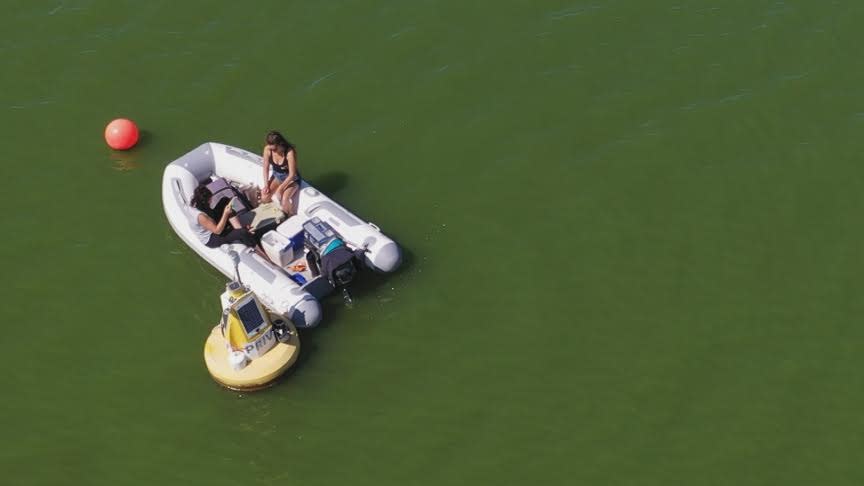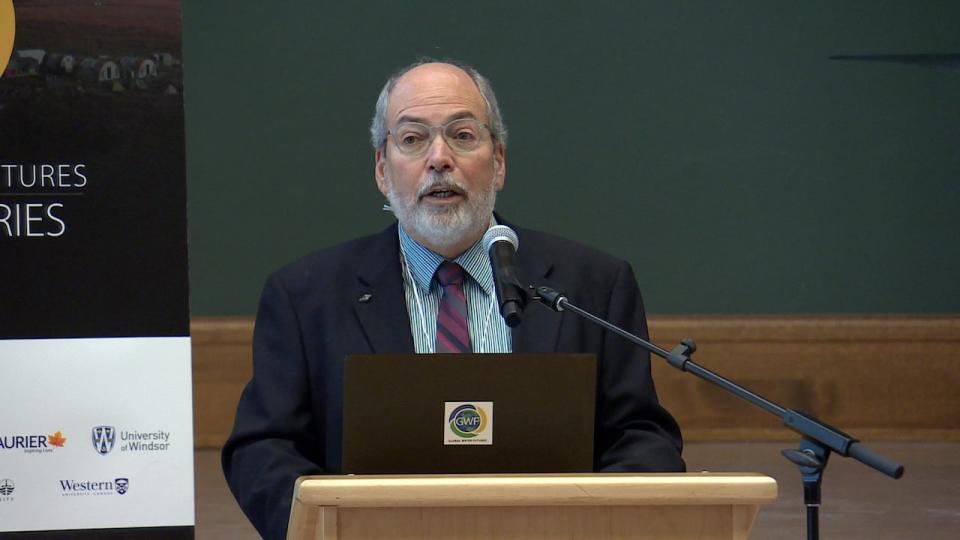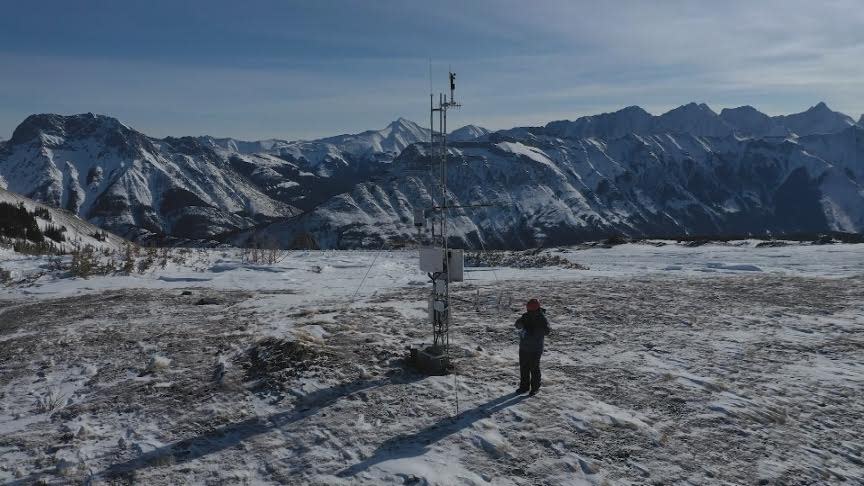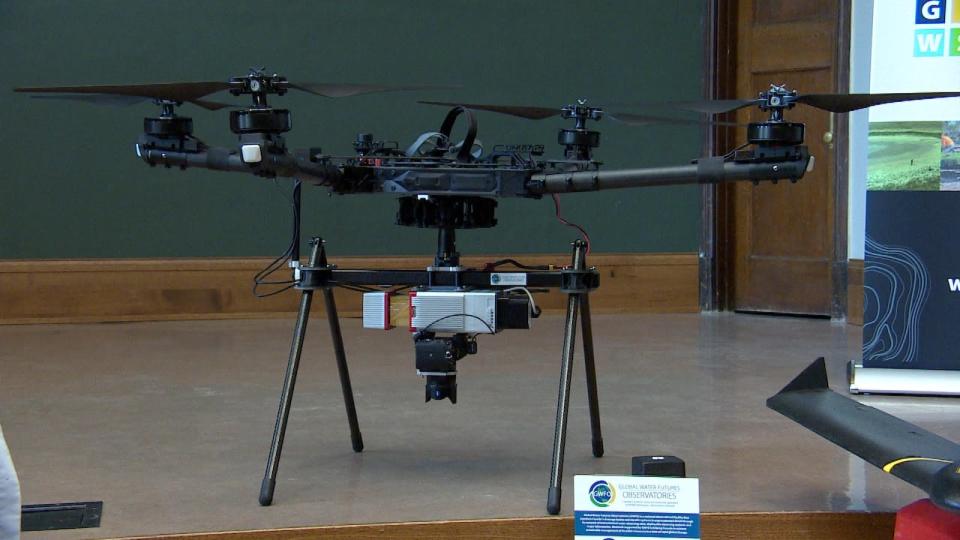University of Sask. officially launches Canada's freshwater monitoring network

Water is becoming a scarce resource and, unless carefully managed, the Prairies could be even drier than they are now, but a project officially announced Wednesday at the University of Saskatchewan is meant to help monitor our waterways, act as an early warning system and point the way to water sustainability.
The Global Water Futures Observatories (GWFO) network is a collaboration between nine universities, along with water experts and government officials.
Data is collected from 64 water observatory sites and several major water laboratories.
"What's powerful about this is that it's a national network," said John Pomeroy, director of GWFO. "These observations stretch from the Great Lakes to the Saint Lawrence Basin to the Saskatchewan Basin to the Mackenzie to the Yukon, and to the Churchill."

John Pomeroy, director of Global Water Futures Observatories program, says monitoring waterways and lakes will help chart a path toward water sustainability. (Travis Reddaway/CBC News)
The data is collected using everything from weather stations to monitoring equipment located on buoys and drones.
"We put them in fields in the Prairies or in a boreal forest or a fen in Northern Canada or out on a lake that's important for drinking water," Pomeroy said.
"The purpose is to advance our scientific understanding, to better develop predictive models and to serve as an early warning system for changes to our water."

Katy Nugent, a research technician with the Global Institute for Water Security, shows off technology similar to what monitors Buffalo Pound Lake. (Travis Reddaway/CBC News)
One example of an area that is constantly monitored is Buffalo Pound Lake, where Regina and Moose Jaw's drinking water is drawn from.
Katy Nugent, a research technician with the Global Institute for Water Security, said she checks the data from the lake with her morning coffee.
If there are any issues, like too much algae or temperature variations, alarms will go off and water treatment plant operators can make adjustments.
"[The algae] can actually produce a neurotoxin that is really hard, expensive and sometimes even impossible to take out of the water altogether."

A weather station on top of a mountain can monitor snow pack and glacier melt. (USask/Global Water Futures Observatories)
Nugent said that happened in 2015, leading the treatment plant to issue a water advisory and shut off intake temporarily.
GWFO is also meant to help find solutions in the areas of climate change, sustainable management of water resources, freshwater for communities, energy and agriculture, and ecosystem conservation.

A drone equipped with monitoring instruments can measue things like glacier melt or snow pack in the mountains. (Travis Reddaway/CBC News)
Pomeroy said we are going to see warmer and overall wetter weather across the Prairies.
"But with the important qualification that the increase in precipitation is mostly in the winter time and in the spring, with summers becoming quite a bit drier. So that's going to challenge agriculture in Saskatchewan quite a bit," he said.
"So we need to think about crops that will thrive in those circumstances. We don't grow much winter wheat here right now, but maybe this will be a viable alternative for the future, just as one example."
He said the way we manage water right now isn't going to work going forward.
"It's hard to get one's head around that — big cities like Calgary, within sight of the Rocky Mountains, with water shortages such that they have water restrictions," he said.
"Or even right now, communities in southern Alberta hauling water right on the edge [of the Rockies], like Pincher Creek, because the reservoirs are are very, very low."
Pomeroy said we have similar situations happening in Saskatchewan.
"The Cumberland Delta, the Saskatchewan River Delta around Cumberland Hills, hitting such low levels that muskrat populations plummeted to being virtually unobtainable. The community of Cumberland House had difficulty accessing drinking water over the winter. Leader, Sask., had difficulty accessing drinking water over this last winter. So we're seeing this now. We're seeing the water crisis in Saskatchewan," he said.
"We have to be ready, and this [project], I hope will help us prepare."


